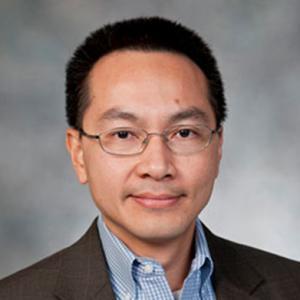"Engineering Catalytic Reactions for Clean Water: Nitrate and PFAS," by Michael Wong

Abstract
Water is a natural resource that is fundamental to life on Earth, and providing access to clean water is one of the grand challenges in society. Population growth around the world not only exacerbates clean water sources for consumption, sanitation, household, and community needs, but also increases the water demand of agriculture and industry. As an enabling form of green chemistry, catalysis science can provide a new means to upgrade contaminated water to a quality level that matches its intended use, if operational constraints (ambient temperature, atmospheric pressure, variable water quality) can be overcome with materials with improved properties. Two example systems from my laboratory will be presented. Nitrate hydrogenation to dinitrogen using In-supported Pd will be discussed as a means to address the incomplete ability of ion-exchange adsorption methods to remove nitrate from drinking water sources (DOI: 10.1021/acscatal.7b01371 ). Depending on the desired products (N2 versus NH3), I will show how the reaction selectivity can be controlled by reaction conditions and metal composition (DOI: 10.1021/acscatal.9b03239 ). Per- and polyfluoroalkyl substances (PFAS) are a very large family of compounds now known to be ubiquitous in the environment, with many compounds that are persistent, bioaccumulative, and toxic. I will introduce hexagonal boron nitride as a new material with unusual photocatalytic degradation capability for these 'forever chemicals' (DOI: 10.1021/acs.estlett.0c00434 ).
Biography
Dr. Michael S. Wong is Professor and Chair of the Department of Chemical and Biomolecular Engineering at Rice University. He holds the Tina and Sunit Patel Chair in Molecular Nanotechnology. He is the principal investigator of the Catalysis and Nanomaterials Laboratory which tackles technical energy and sustainability issues through chemical engineering and materials chemistry approaches. He has received numerous honors over the years, including the MIT TR35 Young Innovator Award, the North American Catalysis Society/Southwest Catalysis Society Excellence in Applied Catalysis Award, the Southwest Region ACS Award, and American Chemical Society Fellow. He is active on a number of professional and government organizations, including AIChE, ACS, and the Army Science Board.
For Zoom link, visit cbe.nd.edu/seminars.
Zoom webinar sponsored by the Department of Chemical and Biomolecular Engineering